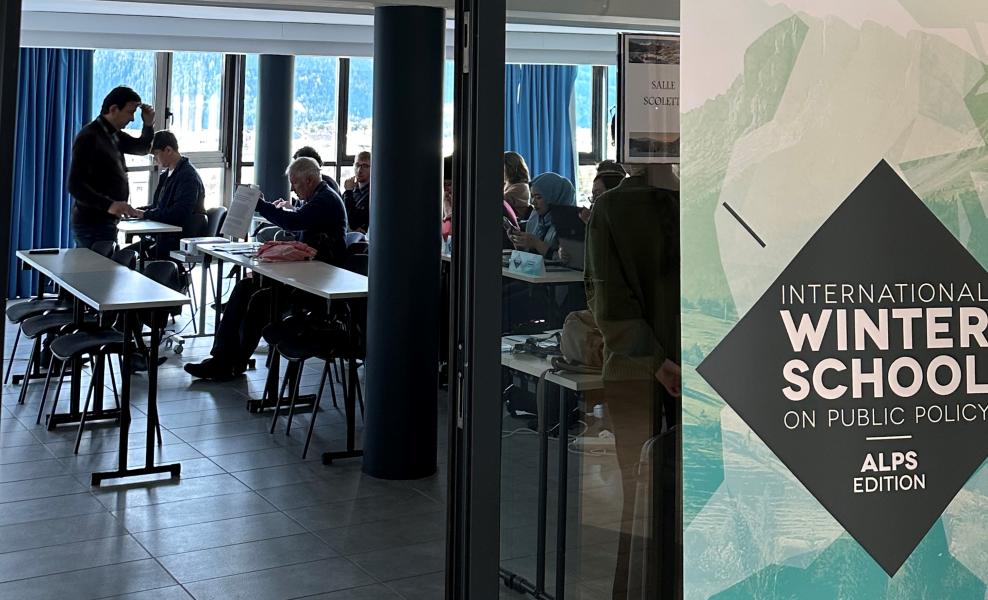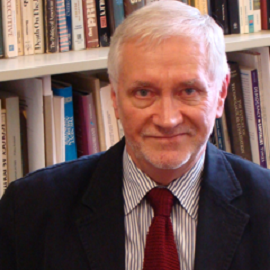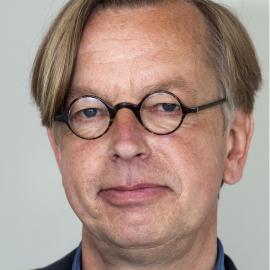Thank you for your message. The IPPA team will get back to you shortly. You first need to login here.

Courses
Full day
Marleen Brans (KU Leuven) | David Aubin(Université Catholique de Louvain)
Advising the Policy Process
The reduction in the means and capacities of administrations, combined with the shift in governance and the rise in power of interest groups, has led to a change in the way policy-making is viewed. States are no longer considered as autarkic organizations that have the necessary information and an autonomous capacity to steer society. Policy-making relies on multiple sources of information and opinions that emanate both from public organizations at different levels of power and from civil society (for example, trade unions, employers' organizations, academics, the voluntary sector, think tanks or research centers and other idea incubators).
This configuration of policy advice providers and their relation to policy-makers constitutes the policy advisory system, which is defined as: “the interlocking set of actors and organizations with unique configurations in each sector and jurisdiction that provides recommendations for action to policy-makers” (Halligan, 1995). Policy advice provides the merits of policy options and their potential to deliver the desired outcomes. It formulates recommendations or opinions about future courses of government action. Not reducible to information provision, policy advisers propose an analysis of problems and/or assessment of possible solutions (Halligan, 1998).
The concept of policy advice unites under its banner several families of researchers who are dedicated to the study of the relationships between different stakeholders during the formulation of public policies. The idea of a family is that the different members share common attachments and attributes without being totally assimilable to each other. In the case of policy advice systems, the different streams of research they bring together share an interest in contributions to understanding policy-making, but they differ in the concepts they mobilize, the frameworks of analysis they develop, and the epistemological postures on which they rely. However, all groups of researchers have the same ambition to move from the description of policy advice production and consumption to their conceptualization and theorization.
The lecture will present the state-of-art in four streams of literature that share an interest in understanding policy advice and advising: Policy advisory systems (Craft and Howlett, 2012; Craft and Wilder, 2017; Hustedt and Veit, 2017; Manwaring, 2018; Aubin & Brans, 2020), knowledge utilization (Radaelli, 1995; Boswell, 2008; Blum, 2018 ; Caby, 2021), policy work (Colebatch and Hoppe, 2018) and political advisors within the executive triangle (Shaw et Eichbaum, 2018 ; van den Berg, 2017; Gouglas et al., 2017). The course invites students to reflect on further theorization in this specific field of policy analysis. In particular, it will consider the use of different kinds of evidence in policy-making and the role of formal advisory bodies and experts.
Frank Fischer(Humboldt University in Berlin)
The Public Policy Process in Critical Perspective: Comparing Theoretical and Methodological Approaches
This course examines the theory of the public policy process, with an emphasis on political, conceptual and methodological issues. It begins with an exploration of the evolution of theory development in public policy studies, including an emphasis on the interplay among competing analytical criteria--efficiency, equity and legitimacy—in policy decision processes. The discussion then turns to an investigation of each phase of the policymaking process, from the politics of agenda setting (emphasizing interest group competition, parties, movements and the media), policy formulation (focused on policy advice, cost-benefit analysis and epistemic policy communities), policy decision-making and adoption (concerned with state imperatives and models of power), implementation (conerned with program design, bureaucratic politics, and program recipients), and policy evaluation and learning (comparing technocratic versus constructivist approaches). Along the way, the role of the role the multiple streams model, the advocacy coalition framework, the institutional perspective, and the discourse-deliberative approach are considered. In the process, the course pays special attention to the kinds of knowledge and inquiry appropriate to each phase of the policy process. The methodological debates between quantitative and qualitative approaches that this gives rise to are also explored.
Philippe Zittoun(University of Lyon)
Studying Policy Process with Constructivist, Pragmatic and Qualitative Approaches
This course focuses on how to study Policy Processes by mobilising different qualitative perspectives, from Constructivist to Pragmatic Approaches. Its main objective is to identify and discuss how we can empirically and methodologically grasp the policy process by observing and defining the struggles around the problem but also around the meaning of proposed solutions. Special attention will be paid to the building of coalitions, existing powerful dimensions, and the solutions to the different challenges encountered along their path. Why do some solutions manage to make it to the decision-making process whereas others fail? Under what conditions and at what price do solutions make it to the solution agenda? How do some actors succeed in "domesticating" "wicked" problems? First, this course will explore the career of a public problem, from emergence to agenda-setting. Second, it will explore the career of the proposal as it passes through different areas such as bureaucracy, the advice system, and the political arena. Policy problems and solutions will be observed on the basis of three games: the game of language where a statement takes on meaning and becomes a problem/solution, the game of actors where this definition is stabilized through coalition building, and the game of power through the formation of multiple levels of power. The course will draw on the studies undertaken by key authors in the field and will explore how they perceive the political dimension in the policy process. It will also propose different concepts and approaches to help grasp the policy process from a different perspective.
Peter Hupe(KU Leuven)
Policy Implementation and Street-level Bureaucracy
When the objectives of a public policy have been formulated and decided upon, the rest seems just a matter of implementation. The latter is assumed as a purely administrative activity. After all, the policy goals are supposed to provide instructions which only have to be followed. However, it is in the process of realizing those goals that public policies get their final substance and form. Particularly crucial is what happens in and around the encounter between individual citizens and the public officials working at the street level of government bureaucracy. This makes policy implementation, more than a subordinate ‘stage’, a multi-dimensional and dynamic part of the policy process. While specific attention is given to the role of street-level bureaucrats, the objective of the course is to better understand these dynamics and the multiple dimensions involved.








